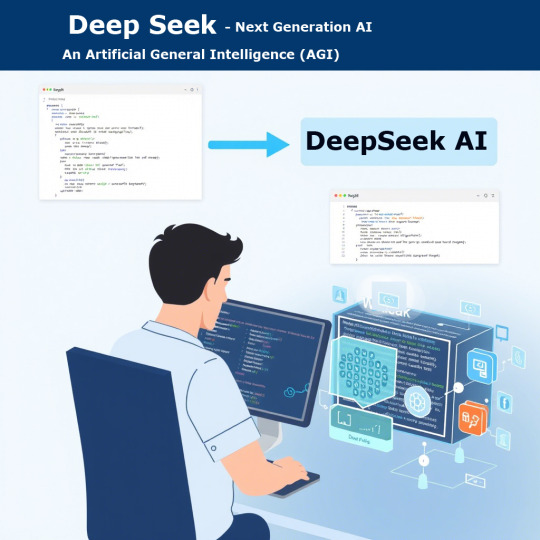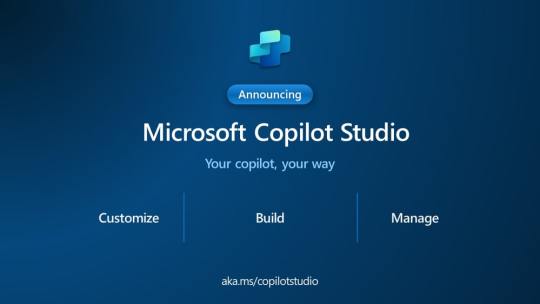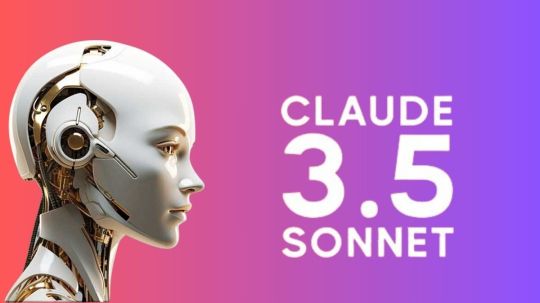#claude ai enterprise
Explore tagged Tumblr posts
Text
A huge language model called Claude AI can produce language that is of human quality in response to a variety of inquiries and prompts.
#artists on tumblr#entertainmentwebadda#claude ai#claude ai login#claude ai vs chatgpt#claude ai app#claude ai pricing#claude ai chat#claude ai bypass#claude ai enterprise#claude ai free trial#claude ai free limit#claude ai founder#claude ai free vs pro#claude ai free plan#claude ai free reddit#claude ai features#how to use claude ai#how to access claude ai#how good is claude ai#how to use claude ai for free#how much does claude ai cost#how to delete claude ai account#how to use claude ai in india#how to delete chats on claude ai#how to bypass claude ai phone verification#is claude ai free#claude openai
1 note
·
View note
Text
Citations: Can Anthropic’s New Feature Solve AI’s Trust Problem?
New Post has been published on https://thedigitalinsider.com/citations-can-anthropics-new-feature-solve-ais-trust-problem/
Citations: Can Anthropic’s New Feature Solve AI’s Trust Problem?


AI verification has been a serious issue for a while now. While large language models (LLMs) have advanced at an incredible pace, the challenge of proving their accuracy has remained unsolved.
Anthropic is trying to solve this problem, and out of all of the big AI companies, I think they have the best shot.
The company has released Citations, a new API feature for its Claude models that changes how the AI systems verify their responses. This tech automatically breaks down source documents into digestible chunks and links every AI-generated statement back to its original source – similar to how academic papers cite their references.
Citations is attempting to solve one of AI’s most persistent challenges: proving that generated content is accurate and trustworthy. Rather than requiring complex prompt engineering or manual verification, the system automatically processes documents and provides sentence-level source verification for every claim it makes.
The data shows promising results: a 15% improvement in citation accuracy compared to traditional methods.
Why This Matters Right Now
AI trust has become the critical barrier to enterprise adoption (as well as individual adoption). As organizations move beyond experimental AI use into core operations, the inability to verify AI outputs efficiently has created a significant bottleneck.
The current verification systems reveal a clear problem: organizations are forced to choose between speed and accuracy. Manual verification processes do not scale, while unverified AI outputs carry too much risk. This challenge is particularly acute in regulated industries where accuracy is not just preferred – it is required.
The timing of Citations arrives at a crucial moment in AI development. As language models become more sophisticated, the need for built-in verification has grown proportionally. We need to build systems that can be deployed confidently in professional environments where accuracy is non-negotiable.
Breaking Down the Technical Architecture
The magic of Citations lies in its document processing approach. Citations is not like other traditional AI systems. These often treat documents as simple text blocks. With Citations, the tool breaks down source materials into what Anthropic calls “chunks.” These can be individual sentences or user-defined sections, which created a granular foundation for verification.
Here is the technical breakdown:
Document Processing & Handling
Citations processes documents differently based on their format. For text files, there is essentially no limit beyond the standard 200,000 token cap for total requests. This includes your context, prompts, and the documents themselves.
PDF handling is more complex. The system processes PDFs visually, not just as text, leading to some key constraints:
32MB file size limit
Maximum 100 pages per document
Each page consumes 1,500-3,000 tokens
Token Management
Now turning to the practical side of these limits. When you are working with Citations, you need to consider your token budget carefully. Here is how it breaks down:
For standard text:
Full request limit: 200,000 tokens
Includes: Context + prompts + documents
No separate charge for citation outputs
For PDFs:
Higher token consumption per page
Visual processing overhead
More complex token calculation needed
Citations vs RAG: Key Differences
Citations is not a Retrieval Augmented Generation (RAG) system – and this distinction matters. While RAG systems focus on finding relevant information from a knowledge base, Citations works on information you have already selected.
Think of it this way: RAG decides what information to use, while Citations ensures that information is used accurately. This means:
RAG: Handles information retrieval
Citations: Manages information verification
Combined potential: Both systems can work together
This architecture choice means Citations excels at accuracy within provided contexts, while leaving retrieval strategies to complementary systems.
Integration Pathways & Performance
The setup is straightforward: Citations runs through Anthropic’s standard API, which means if you are already using Claude, you are halfway there. The system integrates directly with the Messages API, eliminating the need for separate file storage or complex infrastructure changes.
The pricing structure follows Anthropic’s token-based model with a key advantage: while you pay for input tokens from source documents, there is no extra charge for the citation outputs themselves. This creates a predictable cost structure that scales with usage.
Performance metrics tell a compelling story:
15% improvement in overall citation accuracy
Complete elimination of source hallucinations (from 10% occurrence to zero)
Sentence-level verification for every claim
Organizations (and individuals) using unverified AI systems are finding themselves at a disadvantage, especially in regulated industries or high-stakes environments where accuracy is crucial.
Looking ahead, we are likely to see:
Integration of Citations-like features becoming standard
Evolution of verification systems beyond text to other media
Development of industry-specific verification standards
The entire industry really needs to rethink AI trustworthiness and verification. Users need to get to a point where they can verify every claim with ease.
#000#adoption#ai#AI development#AI systems#amp#anthropic#API#approach#architecture#Artificial Intelligence#barrier#challenge#claude#Companies#content#data#development#engineering#enterprise#experimental#Features#file storage#focus#Foundation#Full#hallucinations#how#Industries#Industry
0 notes
Text
DeepSeek vs ChatGPT – How Do These LLMs Compare in 2025?
DeepSeek created the next big LLM for a mere fraction of the cost as compared to enterprise-scale AI models like Gemini, Claude, Llama, and the one that started this revolution – ChatGPT.
However, you might wonder which LLM is better in 2025 – DeepSeek or ChatGPT.
We have tested both these models to provide a detailed analysis of which LLM reigns supreme and whether ChatGPT’s massive infrastructure keeps it ahead of DeepSeek in terms of model accuracy, reliability, and efficiency.

3 notes
·
View notes
Link
#aiapps#aisoftware#aitools#artificialintelligencetools#bestaitools#designtools#educationtools#generative-ai#marketingtools#productivitytools#topaitools
2 notes
·
View notes
Text
Replit and Anthropic’s AI just helped Zillow build production software—without a single engineer
Replit partners with Anthropic’s Claude and Google Cloud to enable non-programmers to build enterprise software, as Zillow and others deploy AI-generated applications at scale, signaling a shift in who can create valuable business software. Source: Replit and Anthropic’s AI just helped Zillow build production software—without a single engineer | VentureBeat

View On WordPress
0 notes
Text
What is Deep Seek?

DeepSeek is a Chinese artificial intelligence (AI) company focused on advancing Artificial General Intelligence (AGI). It specializes in developing large language models (LLMs), multimodal models, and AI-powered solutions for both general and industry-specific applications. Below is a detailed overview of DeepSeek and its offerings: Key Features of DeepSeek - Core Technology: - LLMs: Develops state-of-the-art language models for text generation, reasoning, code generation, and multilingual tasks. - Multimodal Models: Combines text, image, and other data types for advanced AI interactions. - Domain-Specific Models: Tailored models for industries like finance, healthcare, education, and legal services. - Open-Source Contributions: - Releases open-source models (e.g., DeepSeek-R1, DeepSeek-Math) to foster community collaboration. - Provides fine-tuning tools and datasets for developers. - API Services: - Offers API access to its proprietary models (similar to OpenAI’s GPT-4 or Anthropic’s Claude). - Supports tasks like chat completions, text summarization, code generation, and data analysis. - Customization: - Allows enterprises to fine-tune models on private data for specialized use cases. - Scalability: - Optimized for high-performance computing and low-latency deployments. Use Cases - Chatbots & Virtual Assistants: Build conversational agents for customer support or internal workflows. - Content Generation: Automate blog posts, marketing copy, or technical documentation. - Code Development: Generate, debug, or optimize code (e.g., Python, JavaScript). - Education: Create tutoring systems, automated grading, or interactive learning tools. - Research: Accelerate data analysis, literature reviews, or hypothesis testing. - Enterprise Solutions: Industry-specific applications in finance (risk analysis), healthcare (diagnostics), and legal (contract review). Technical Strengths - Performance: Competes with leading models like GPT-4 in benchmarks for reasoning, coding, and math. - Efficiency: Optimized inference and training frameworks reduce computational costs. - Multilingual Support: Strong capabilities in Chinese, English, and other languages. - Ethical AI: Implements safeguards to reduce harmful outputs (bias, misinformation). How to Access DeepSeek - API: - Use the DeepSeek API for cloud-based model access (similar to the example provided in the previous answer). - Official documentation: DeepSeek API Docs (verify the URL on their official site). - Open-Source Models: - Download models from platforms like Hugging Face or GitHub. - Example: DeepSeek-Math-7B on Hugging Face. - Enterprise Solutions: - Contact DeepSeek’s sales team for custom deployments, on-premise solutions, or industry-specific models. Differentiation from Competitors Feature DeepSeek Competitors (OpenAI, Anthropic) Open-Source Offers open-source models and tools. Mostly closed-source (except Meta’s Llama). Domain Expertise Strong focus on vertical industries. General-purpose models. Cost Competitive pricing for API and compute. Higher pricing tiers for advanced models. Language Support Strong Chinese-language optimization. Primarily English-first. Getting Started - Visit the DeepSeek Official Website for the latest updates. - Explore their GitHub for open-source models and code samples. - Try the API with a free tier (if available) or contact their team for enterprise solutions. Future Directions DeepSeek is actively expanding into: - Multimodal AGI: Integrating vision, audio, and robotics. - Real-Time Applications: Low-latency solutions for industries like autonomous systems. - Global Reach: Increasing support for non-Chinese markets. Read the full article
0 notes
Text
I Found That Combining DeepSeek R1 + Claude Sonnet 3.5 is the Ultimate AI Power Duo for 2025!
The Groundbreaking DeepSeek R1 Takes 2025 by Storm – Dominating Global App Download Charts During the Lunar New Year! How Can You Fully Unlock the Power of DeepSeek R1’s Analytical and Thinking Capabilities? After Multiple Uses, I’ve Found the Answer: DeepSeek R1 + Claude Sonnet 3.5 is the AI Power Duo You Need!

1. DeepSeek R1: Pushing the Limits of Analytical Power
Overview: DeepSeek R1 is quickly becoming one of the most talked-about AI tools of 2025. Its ability to analyze complex problems and generate insightful solutions is second to none.
Why It’s Powerful:
Advanced Multi-step Reasoning: DeepSeek R1 is designed to handle intricate tasks that require multi-step logic and deep problem-solving. It's perfect for scenarios where complex analysis and creative insights are crucial.
Adaptability Across Sectors: Whether you’re in business strategy, scientific research, or high-level programming, DeepSeek R1 excels at providing well-structured, reasoned approaches to tackle tough challenges.
Target Market:
Professionals in need of powerful reasoning capabilities (e.g., consultants, strategists)
Research institutions and enterprises
Complex decision-making environments
2. Claude Sonnet 3.5: Precision and Clarity in Every Response

Overview: Claude Sonnet 3.5 shines in the realm of natural language processing. Its ability to generate clear, concise, and grammatically perfect answers makes it an ideal companion for any content-driven tasks.
Why It’s Powerful:
Natural Language Generation: Claude Sonnet 3.5 excels at producing elegant, human-like text that makes understanding complex topics easier for readers.
Reliable & Structured Answers: Whether you need a straightforward answer to a question or a detailed report, Claude Sonnet 3.5 ensures clarity and logical structure, making it perfect for content creation, customer support, and educational tools.
Target Market:
Content creators, copywriters, and marketers
Educational institutions or e-learning platforms
Customer service automation (e.g., chatbots, support tickets)
3. DeepSeek R1 + Claude Sonnet 3.5: The Perfect AI Combo for Enhanced Efficiency
Why Combining Them Works: You don’t have to choose between powerful reasoning and smooth, precise communication. By combining DeepSeek R1’s analytical prowess with Claude Sonnet 3.5’s excellent language generation, you get the best of both worlds.
Deep Thought + Clear Communication: DeepSeek R1 can process the complex analysis and offer multiple solutions, while Claude Sonnet 3.5 ensures those insights are conveyed in a way that’s easily understood and actionable.
Boost Efficiency: The two models together not only improve accuracy but also save time by handling different tasks at once—DeepSeek R1 handles the deep dive, and Claude Sonnet 3.5 refines the output into concise, readable content.
Content Quality + Precision: DeepSeek R1 ensures the content is based on accurate, in-depth analysis, while Claude Sonnet 3.5 delivers it in a polished, professional format.
Use Case Example: Imagine you’re working on a critical business decision. DeepSeek R1 analyzes market data, forecasts trends, and suggests strategies. Then, Claude Sonnet 3.5 takes this information and generates a strategic report that is easy to present to executives.
Ideal Industries:
Business and Marketing: Use the combination for market analysis, strategy formulation, and professional reporting.
Education & Training: Leverage this duo for course development, lesson planning, and student support.
Content Creation: Writers and content marketers can combine the analytical depth of DeepSeek R1 with the natural language fluency of Claude Sonnet 3.5 to create high-quality content faster.
4. Real-Life Use Cases: How the DeepSeek R1 + Claude Sonnet 3.5 Combo Improved My Work Efficiency
Personal Experience: After using DeepSeek R1 and Claude Sonnet 3.5 for several weeks, I realized that this combination significantly boosted both my productivity and the quality of my work. For instance, when I had to prepare a market research report, I first used DeepSeek R1 to analyze data, then fed the insights into Claude Sonnet 3.5 to generate a detailed and easy-to-understand presentation for my team.
Client Projects:
In a client project, I used DeepSeek R1 for competitive analysis, followed by Claude Sonnet 3.5’s ability to generate digestible content for client proposals.
This combo also works wonders in SEO, where DeepSeek R1 can analyze trending keywords and data, and Claude Sonnet 3.5 can create SEO-optimized content that hits all the right targets.
5. DeepSeek R1 + Claude Sonnet 3.5: Shaping the Future of AI in 2025
2025 AI Trends: The AI landscape in 2025 is evolving, with tools like DeepSeek R1 and Claude Sonnet 3.5 pushing the boundaries of what’s possible. These models are not just enhancing traditional workflows—they’re revolutionizing industries by combining deep analysis with flawless communication.
The Power Duo for Enterprises: Whether you’re in healthcare, finance, or marketing, these two models together provide unmatched insight and output quality.
XXAI** Integration:** XXAI brings these models to you at an affordable price, allowing businesses and individuals to harness the combined power of these two top-tier AI models without breaking the bank.

6. Conclusion: Why DeepSeek R1 + Claude Sonnet 3.5 is the No.1 Choice for 2025 and Beyond
If you want to stay ahead in the fast-evolving AI world, using the DeepSeek R1 and Claude Sonnet 3.5 combination is an absolute game-changer. It allows you to tackle complex problems, generate clear communication, and enhance productivity across multiple domains.
With XXAI, you get access to these powerful AI tools at an affordable price, making it the perfect solution for both individuals and businesses aiming to maximize efficiency.
End Note:
In 2025, the AI space is more dynamic than ever, and with DeepSeek R1 + Claude Sonnet 3.5, you can harness the power of cutting-edge AI to stay ahead of the curve. Whether you're making key business decisions, enhancing content creation, or streamlining workflows, this combo is the ultimate AI toolkit.
Start your journey with XXAI today and see how these powerhouse models can revolutionize your work and life!
0 notes
Text
Corporate AI Agents Will Dominate in 2025, Leaving Blockchain Startups Behind
As we step into 2025, the technology landscape is witnessing a seismic shift in artificial intelligence (AI) and blockchain. AI-powered corporate agents are rapidly becoming the dominant force, while blockchain startups struggle to keep up. This transition is fueled by factors such as advancements in AI, corporate funding, regulatory challenges for blockchain startups, and the growing integration of AI into enterprise ecosystems.

This blog explores why corporate AI agents are outpacing blockchain startups and what this means for the future of decentralized innovation.
The Rise of Corporate AI Agents
1. AI’s Unmatched Business Utility
AI agents have evolved from simple chatbots into intelligent, autonomous systems capable of handling complex business processes. These corporate AI agents optimize supply chains, automate financial analysis, enhance cybersecurity, and even facilitate decision-making at an executive level. Companies like OpenAI, Google DeepMind, and Microsoft have introduced sophisticated AI agents that integrate seamlessly with existing enterprise workflows, making them indispensable for corporations.
2. Massive Corporate Funding and Infrastructure
Unlike blockchain startups that often rely on limited venture capital or token-based funding, AI development is backed by tech giants with deep pockets. Corporations such as Microsoft, Amazon, and Nvidia are investing billions into AI infrastructure, computing power, and research.
For instance, Microsoft’s $10 billion investment in OpenAI has given enterprises access to powerful AI tools embedded within the Microsoft ecosystem, including Azure cloud services. Similarly, Google’s Gemini AI and Anthropic’s Claude are being integrated into business processes, further solidifying AI’s foothold in the corporate world.
3. Regulatory Favorability
Governments worldwide are more receptive to AI advancements compared to blockchain and cryptocurrencies. AI is seen as a driver of economic growth, increasing productivity, and innovation. In contrast, blockchain startups face significant regulatory hurdles, including compliance with anti-money laundering (AML) laws, securities regulations, and Know Your Customer (KYC) requirements.
Regulatory crackdowns on crypto-related projects have stifled blockchain innovation. The collapse of FTX, increasing scrutiny on decentralized finance (DeFi), and the SEC’s stringent approach toward token offerings have made it difficult for blockchain startups to thrive. Meanwhile, AI companies are receiving government grants and policy support, further accelerating their dominance.
The Challenges Facing Blockchain Startups
1. Funding and Market Hesitation
Blockchain startups have been hit hard by the recent bear market and regulatory scrutiny. Many investors are cautious about pouring capital into blockchain ventures due to the high risks associated with regulatory actions and market volatility. Unlike AI startups, which attract investments from traditional venture capital firms and corporate giants, blockchain projects often depend on token sales and ICOs (Initial Coin Offerings), which are under increased regulatory pressure.
2. Scalability and Adoption Issues
Despite the promise of decentralization, blockchain technology has struggled with scalability. Many blockchain networks, including Ethereum, still face high transaction fees and slow processing times. While Layer 2 solutions like Optimism and Arbitrum aim to improve scalability, they are yet to achieve mass adoption on the level that AI-powered enterprise solutions have.
Corporate AI agents, on the other hand, can be easily integrated into existing IT infrastructures without requiring users to shift to a new decentralized paradigm. This ease of adoption gives AI a significant advantage over blockchain-based solutions.
3. Corporate Control vs. Decentralization
One of the core principles of blockchain is decentralization, which often contradicts corporate business models that thrive on control and proprietary technologies. Companies are hesitant to adopt decentralized blockchain solutions due to concerns over data privacy, compliance, and governance.
AI, however, fits perfectly within the corporate framework. Companies can deploy AI models within their own secure cloud environments, ensuring control over data and operations. In contrast, fully decentralized blockchain solutions struggle to convince enterprises to relinquish control over their data and processes.
How AI Agents Are Replacing Blockchain Use Cases
1. AI-Powered Smart Contracts
Smart contracts, once seen as blockchain’s key innovation, are now being enhanced by AI. AI-powered contracts can dynamically adapt to new legal and business conditions, making them more flexible than traditional blockchain-based smart contracts. AI-driven automation allows companies to integrate legal and financial compliance directly into contract execution, reducing the reliance on decentralized blockchain solutions.
2. AI in Financial Services
Blockchain was initially positioned as the future of finance, with DeFi (Decentralized Finance) aiming to replace traditional banking. However, corporate AI agents are now taking over key financial functions, from fraud detection to risk management and algorithmic trading. AI-driven financial solutions are being widely adopted by banks, hedge funds, and insurance companies, leaving blockchain-based alternatives struggling for mainstream acceptance.
3. Supply Chain Optimization
Blockchain startups have long touted supply chain transparency as a key use case. However, AI-powered supply chain solutions are proving to be more efficient. AI agents can analyze vast amounts of data in real-time, predicting disruptions and optimizing logistics far better than static blockchain records. Companies like Amazon and Walmart are leveraging AI for predictive inventory management, reducing costs and improving efficiency without needing blockchain’s immutable ledgers.
The Future of Blockchain in an AI-Dominated World
Despite the current dominance of corporate AI Agent Development, blockchain technology still holds potential in certain niches. Innovations like AI-driven decentralized networks, data attribution models, and privacy-preserving AI training on blockchain could create synergies between the two technologies.
Projects like OpenLedger, which integrates AI and blockchain for decentralized data trust, demonstrate how blockchain can complement AI rather than compete with it. Blockchain’s role may shift from being a standalone disruptor to a supporting technology for AI applications.
Conclusion: A New Era of AI Dominance
As we move further into 2025, corporate AI agents are set to dominate, leaving blockchain startups behind. With massive funding, regulatory favorability, and seamless enterprise integration, AI is outpacing blockchain innovation in real-world adoption.
While blockchain technology still has potential in decentralized finance, digital identity, and data ownership, its broader adoption struggles against AI’s rapid corporate-backed expansion. The future may not be blockchain vs. AI but rather AI-powered corporate systems leveraging blockchain where necessary.
For blockchain startups to stay relevant, they must embrace AI and find ways to integrate their solutions within the AI-driven enterprise landscape. Otherwise, corporate AI agents will continue their march toward dominance, making blockchain’s revolutionary promises a fading dream.
0 notes
Text
AI startup Anthropic closes in on $60bn valuation
Synthetic intelligence startup Anthropic is near elevating $2bn in a deal that may triple the four-year-old firm’s valuation to $60bn. Chatbot developer Claude AI is within the information for a brand new spherical of funding from a number of Silicon Valley traders, together with Lightspeed Enterprise Companions. The spherical comes two months after Anthropic secured a further $4bn in funding…
0 notes
Text
[ad_1] With its advert income in decline, and growth prices mounting, X is making a brand new push on its Grok AI chatbot, because it launches the newest model of the instrument to paying customers within the app. As you possibly can see on this picture, X is now highlighting Grok within the left-side perform bar, with a blue “New” tag to seize consideration. Earlier this week, X rolled out Grok 2 to all customers, which incorporates picture era capabilities (powered by Flux), together with numerous practical enhancements to reinforce X’s generative AI expertise. As defined by X: “???? Premium and Premium+ customers could have entry to 2 new fashions: Grok-2 and Grok-2 mini. Grok-2 is our state-of-the-art AI assistant with superior capabilities in each textual content and imaginative and prescient understanding, integrating real-time info from the ???? platform. Grok-2 mini is our small however succesful mannequin that provides a stability between pace and reply high quality. In comparison with its predecessor, Grok-2 is extra intuitive, steerable, and versatile throughout a variety of duties, whether or not you are looking for solutions, collaborating on writing, or fixing coding duties.” Certainly, xAI claims that the newest model of Grok “outperforms each Claude and GPT-4 on the LMSYS leaderboard when it comes to its general Elo rating”, making it comparable, if not higher than numerous different instruments available in the market. And now, X is hoping to make use of Grok to pump X Premium sign-ups, which it hopes will assist to scale back its dependence on advert income, and get its enterprise again on monitor. Although X is in a tricky spot on this respect. In response to reviews, X’s general advert income has declined by round 70% since Elon Musk took over on the platform in 2022. X can also be dropping customers, with the app down 5 million actives in Europe over the previous 12 months, whereas it’s additionally dealing with bans and fines in numerous areas over its refusal to adjust to authorities requests. On the similar time, X’s debt servicing prices, primarily based on loans Musk obtained to buy the app, have elevated its monetary burden. So, on stability, X is up towards it, although xAI could also be its key hope on this respect, with Elon’s pet AI challenge securing $6 billion in funding from traders again in Could. The challenge has gained the backing of Saudi Prince Alwaleed bin Talal, who’s eager to speculate extra in AI tasks, which may give it a gradual stream of capital to help the challenge for a while but. And since xAI is reliant on information from X to energy its methods, there could also be a way for Musk to funnel funding from one challenge to the opposite, so that will present a helpful lifeline to X. It’s unclear how precisely this might work, however X may have alternate funding, exterior of its direct income streams. Besides, X will finally want to face by itself, as a sustainable enterprise enterprise. Musk has mentioned so himself, although it’s tough to see how his “free speech” method to content material moderation will ever gel with advertiser calls for for model security and assurance. Musk’s authentic plan for his X challenge concerned maximizing subscriptions by way of X Premium, which he hoped would finally account for 50% of the platform’s income. It’s not near that as but, however its superior Grok mannequin is the following lure to get extra individuals to enroll, thus decreasing its reliance on advert dollars over time. However with numerous different AI instruments already out there, and the AI hype prepare dropping some steam of late, it’s arduous to see this changing into a significant factor within the rejuvenation of the app. Nonetheless, X is clearly making this a spotlight, as it really works to seek out new methods to drive earnings, and enhance its alternatives. [ad_2]
0 notes
Text
Top 10 IAs Gratuitas Mais Eficientes
1. ChatGPT (Versão Gratuita)
5 milhões de consultas diárias
91% de precisão em respostas
Suporte a 120 idiomas
2. Google Gemini
Integração completa com Google Workspace
Processamento multimodal avançado
Capacidade de análise visual gratuita
3. Bing Chat Enterprise
Integração Microsoft 365
Pesquisa em tempo real
Recursos empresariais gratuitos
4. Claude AI (Versão Free)
100.000 tokens gratuitos mensais
Especialidade em análise de documentos
Precisão superior em tarefas complexas
5. Stable Diffusion Web
Geração de imagens gratuita
Personalização ilimitada
Uso comercial permitido
6. Midjourney Web UI
Interface simplificada gratuita
Geração de arte de alta qualidade
Comunidade ativa de suporte
7. AutoGPT Free
Automação de tarefas complexas
Integração com outras IAs
Personalização de workflows
8. Hugging Face Open Models
Modelos de código aberto
Variedade de aplicações
Suporte comunitário robusto
9. LangChain Community
Framework gratuito para desenvolvimento
Integração com múltiplas IAs
Recursos de automação avançados
10. Ollama Local Models
Execução local gratuita
Privacidade garantida
Personalização completa
0 notes
Text
David Driggers, CTO of Cirrascale – Interview Series
New Post has been published on https://thedigitalinsider.com/david-driggers-cto-of-cirrascale-interview-series/
David Driggers, CTO of Cirrascale – Interview Series


David Driggers is the Chief Technology Officer at Cirrascale Cloud Services, a leading provider of deep learning infrastructure solutions. Guided by values of integrity, agility, and customer focus, Cirrascale delivers innovative, cloud-based Infrastructure-as-a-Service (IaaS) solutions. Partnering with AI ecosystem leaders like Red Hat and WekaIO, Cirrascale ensures seamless access to advanced tools, empowering customers to drive progress in deep learning while maintaining predictable costs.
Cirrascale is the only GPUaaS provider partnering with major semiconductor companies like NVIDIA, AMD, Cerebras, and Qualcomm. How does this unique positioning benefit your customers in terms of performance and scalability? As the industry evolves from Training Models to the deployment of these models called Inferencing, there is no one size fits all. Depending upon the size and latency requirements of the model, different accelerators offer different values that could be important. Time to answer, cost per token advantages, or performance per watt can all affect the cost and user experience. Since Inferencing is for production these features/capabilities matter.
What sets Cirrascale’s AI Innovation Cloud apart from other GPUaaS providers in supporting AI and deep learning workflows? Cirrascale’s AI Innovation Cloud allows users to try in a secure, assisted, and fully supported manner new technologies that are not available in any other cloud. This can aid not only in cloud technology decisions but also in potential on-site purchases.
How does Cirrascale’s platform ensure seamless integration for startups and enterprises with diverse AI acceleration needs? Cirrascale takes a solution approach for our cloud. This means that for both startups and enterprises, we offer a turnkey solution that includes both the Dev-Ops and Infra-Ops. While we call it bare-metal to distinguish our offerings as not being shared or virtualized, Cirrascale fully configures all aspects of the offering including fully configuring the servers, networking, Storage, Security and User Access requirements prior to turning the service over to our clients. Our clients can immediately start using the service rather than having to configure everything themselves.
Enterprise-wide AI adoption faces barriers like data quality, infrastructure constraints, and high costs. How does Cirrascale address these challenges for businesses scaling AI initiatives? While Cirrascale does not offer Data Quality type services, we do partner with companies that can assist with Data issues. As far as Infrastructure and costs, Cirrascale can tailor a solution specific to a client’s specific needs which results in better overall performance and related costs specific to the customer’s requirements.
With Google’s advancements in quantum computing (Willow) and AI models (Gemini 2.0), how do you see the landscape of enterprise AI shifting in the near future? Quantum Computing is still quite a way off from prime time for most folks due to the lack of programmers and off-the-shelf programs that can take advantage of the features. Gemini 2.0 and other large-scale offerings like GPT4 and Claude are certainly going to get some uptake from Enterprise customers, but a large part of the Enterprise market is not prepared at this time to trust their data with 3rd parties, and especially ones that may use said data to train their models.
Finding the right balance of power, price, and performance is critical for scaling AI solutions. What are your top recommendations for companies navigating this balance? Test, test, test. It is critical for a company to test their model on different platforms. Production is different than development—cost matters in production. Training may be one and done, but inferencing is forever. If performance requirements can be met at a lower cost, those savings fall to the bottom line and might even make the solution viable. Quite often deployment of a large model is too expensive to make it practical for use. End users should also seek companies that can help with this testing as often an ML Engineer can help with deployment vs. the Data Scientist that created the model.
How is Cirrascale adapting its solutions to meet the growing demand for generative AI applications, like LLMs and image generation models? Cirrascale offers the widest array of AI accelerators, and with the proliferation of LLMs and GenAI models ranging both in size and scope (like multi-modal scenarios), and batch vs. real-time, it truly is a horse for a course scenario.
Can you provide examples of how Cirrascale helps businesses overcome latency and data transfer bottlenecks in AI workflows? Cirrascale has numerous data centers in multiple regions and does not look at network connectivity as a profit center. This allows our users to “right-size” the connections needed to move data, as well as utilize more that one location if latency is a critical feature. Also, by profiling the actual workloads, Cirrascale can assist with balancing latency, performance and cost to deliver the best value after meeting performance requirements.
What emerging trends in AI hardware or infrastructure are you most excited about, and how is Cirrascale preparing for them? We are most excited about new processors that are purpose built for inferencing vs. generic GPU-based processors that luckily fit quite nicely for training, but are not optimized for inference use cases which have inherently different compute requirements than training.
Thank you for the great interview, readers who wish to learn more should visit Cirrascale Cloud Services.
#accelerators#adoption#ai#AI adoption#AI innovation#AI models#amd#applications#approach#Cerebras#Cirrascale#claude#Cloud#cloud services#cloud technology#Companies#computing#connectivity#course#CTO#data#Data Centers#data quality#Data Scientist#data transfer#Deep Learning#deployment#development#Engineer#enterprise
0 notes
Text
The Rise of Intelligent AI Agents
Discover how AI agents are set to revolutionize tech and business, offering smarter assistance in our daily and work lives.

As we welcome the dawn of 2025, a new era is upon us—an era dominated by the rise of AI agents, poised to transform our interaction with technology. Picture a world where our digital assistants not only perform tasks optimally but do so with a level of independence and intuition that mirrors human capabilities. This vision is fast becoming reality as titans of technology, including OpenAI, Anthropic, and Microsoft, push the boundaries of artificial intelligence to make this year the most significant yet in terms of AI advancements.

OpenAI's upcoming AI agents, set for release next year, mark a major step towards Artificial General Intelligence (AGI). Unveiled at OpenAI DevDay, these agents shift from passive responders to autonomous performers, capable of complex tasks like independently ordering goods over the phone. This development aligns with the five-stage AGI roadmap, moving us from current logic-based assistance to true autonomy. The potential impact on productivity is significant, reducing traditional workflows from days to hours and transforming efficiency across industries.

Companies like Anthropic are also at the forefront, fine-tuning AI's handling of complex coding tasks. Their Claude 3.5 Sonnet, an updated AI model, showcases enhancements in 'agentic' coding capabilities, marking improvements across software engineering skills. They have pioneered the concept of AI utilizing computers just like humans, further underscoring the trend toward AI-led automation of multi-step processes, decision-making, and workflow management.

Meanwhile, Microsoft's introduction of Copilot Studio unveils a new frontier for enterprise efficiency. Through autonomous agents tailored for sales, finance, and customer service, businesses can anticipate enhanced productivity. This advancement reflects a paradigm shift wherein AI systems not only assist in basic tasks but can potentially operate with an autonomy reminiscent of human-driven business operations. By performing tasks such as managing supplier performance or expediting client onboarding, AI agents are set to enhance operational dynamics significantly.
Safety and ethics remain central to AI’s evolution, with developers prioritizing rigorous safety protocols and transparency to prevent misuse. As AI agents advance, it’s crucial they clearly convey their non-human nature to avoid ethical pitfalls. By 2025, these agents are expected to transition from supportive aides to integrated tools in daily life, unlocking new levels of efficiency and innovation. This shift calls for responsible management to ensure AI aligns with human values, enhancing rather than replacing human capabilities, and paving the way for a future where AI serves as a trusted partner in innovation.
For more blogs like this: thenextaitool.com/blog
0 notes
Text
Why Use The Upgraded Claude 3.5 Sonnet Model On Vertex AI

Introducing Vertex AI’s Upgraded Claude 3.5 Sonnet from Anthropic
In order to offer the most potent AI tools available together with unmatched choice and flexibility, Google Cloud has built its Vertex AI platform in an open manner. For this reason, Vertex AI gives you access to more than 160 models, including third-party, open-source, and first-party models, enabling you to create solutions that are especially suited to your requirements.
It declared in June that Vertex AI Model Garden now includes Anthropic’s Claude 3.5 Sonnet. Google Cloud announcing today that the upgraded Claude 3.5 Sonnet , which includes a new “computer use” capability in public beta on Vertex AI Model Garden, is now generally available for US clients. This implies that you may instruct the model to produce computer actions, including as keystrokes and mouse clicks, using the upgraded Claude 3.5 Sonnet enabling it to communicate with your user interface (UI). The upgraded Claude 3.5 Sonnet model is available to you via Model-as-a-Service (MaaS) solution.
Additionally, in the upcoming weeks, Vertex AI will also offer Claude 3.5 Haiku, Anthropic’s quickest and most affordable model.
Why Use Vertex AI’s Upgraded Claude 3.5 Sonnet Model?
Vertex AI streamlines the process of testing, implementing, and maintaining models such as the upgraded Claude 3.5 Sonnet by acting as a single AI platform.
By fusing Vertex AI’s strength with the intelligence of Claude 3.5 models, you can:
Try things with assurance
Vertex AI offers the enhanced Claude 3.5 Sonnet as a fully managed Model-as-a-Service. Without having to worry about complicated deployment procedures, MaaS allows you to do thorough tests in an intuitive environment and explore Claude 3.5 models with straightforward API requests.
Launch and operate without overhead
Simplify the deployment and scaling process. Claude 3.5 models offer pay-as-you-go or allocated throughput price options, as well as fully managed infrastructure tailored for AI workloads.
Create complex AI agents
Utilize Vertex AI’s tools and the enhanced Claude 3.5 Sonnet’s special features to create agents.
Construct with enterprise-level compliance and security
Make use of Google Cloud‘s integrated privacy, security, and compliance features. Enterprise controls, like the new organization policy for Vertex AI Model Garden, offer the proper access controls to guarantee that only authorized models are accessible.
Build with enterprise-grade security and compliance
It carefully curated library of more than 160 enterprise-ready first-party, open-source, and third-party models in Model Garden has grown with the inclusion of the Claude 3.5 models to Vertex AI. This allows you to choose the best models for your requirements through open and adaptable AI ecosystem.
Customers building with Anthropic’s Claude models on Vertex AI
Global energy provider AES uses Claude on Vertex AI to expedite energy safety assessments, greatly cutting down on the amount of time needed for this crucial yet time-consuming task:
Millions of people use Zapia, a personal AI assistant powered by Claude on Vertex AI, which is developed by BrainLogic AI, a firm creating innovative AI solutions especially for Latin America:
Through its AI-powered chat platform, Poe, Quora, the worldwide knowledge-sharing website, is utilizing Claude’s skills on Vertex AI to enable millions of daily interactions:
It is thrilled to collaborate with Anthropic and keep offering Google Cloud clients cutting-edge innovation backed by an open and accessible AI ecosystem.
How to get started with the upgraded Claude 3.5 Sonnet on Google Cloud
Choose the Claude 3.5 Sonnet v2 model tile by going to Model Garden. The upgraded Claude 3.5 Sonnet is also readily available on the Google Cloud Marketplace, where you can additionally benefit from the possibility of reducing your Google Cloud cost obligations. Today, only consumers in the United States can purchase the enhanced Claude 3.5 Sonnet v2.
Click “Enable,” then adhere to the next steps.
Start constructing by using sample notebook and documentation.
Safety & Trust
Every stage of Anthropic’s AI development is influenced by its dedication to safety. It carried out comprehensive safety assessments across several languages and policy domains when developing Claude 3.5 Haiku. Additionally, improved Claude’s capacity to handle delicate material with caution. Google Cloud in-house testing demonstrates that Claude 3.5 Haiku maintains exacting safety standards while delivering significant capability improvements.
Read more on govindhtech.com
#UpgradedClaude35#VertexAI#SonnetModel#GoogleCloud#ai#Claude35Haiku#GoogleCloudMarketplace#SafetyTrust#Anthropic#Customersbuilding#technology#technews#news#govindhtech
0 notes
Text
30+ Must-Know Digital Marketing Trends for 2025
The digital marketing landscape is undergoing a rapid transformation as we approach 2025. Innovative technologies, shifting consumer behaviors, and a heightened focus on data privacy are reshaping the way businesses connect with their target audiences.
As marketers strive to stay ahead of the curve, it's crucial to understand the key trends that will define the industry in the coming years. By adapting strategies and leveraging emerging tools, businesses can optimize their marketing efforts and drive measurable success.
In this article, we'll explore the top digital marketing trends for 2025, providing valuable insights to help businesses of all sizes—from small startups to established enterprises—navigate the ever-evolving digital landscape. Whether you're looking to enhance your online presence or achieve specific growth objectives, understanding these trends will be essential for success.
Generative AI Revolutionizes Personalization
Generative AI has emerged as a game-changer in the realm of personalization, enabling marketers to create tailored content at an unprecedented scale and speed. Tools like ChatGPT, Google Bard, and Anthropic's Claude are increasingly being integrated into CRM platforms, ad campaigns, and content marketing strategies—allowing businesses to predict customer needs and deliver hyper-personalized experiences.
AI-Driven Content Creation at Scale
With generative AI, marketers can now produce personalized content quickly and efficiently. These AI-powered tools analyze vast amounts of customer data to generate insights into behavior, preferences, and trends, enabling more precise segmentation and messaging. As a result, businesses can craft compelling campaigns that resonate deeply with their target audiences.
Moreover, AI-generated content is moving beyond basic templates and email marketing to more complex areas. Voice search optimization, video content production, and real-time product customization are just a few examples of how generative AI is transforming content creation. By leveraging these capabilities, marketers can deliver tailored experiences across various channels, enhancing customer engagement and loyalty.
Hyper-Targeted Ad Campaigns
AI's integration into paid media is revolutionizing the way ads are created, targeted, and optimized. In 2025, the role of AI in programmatic advertising and PPC will continue to grow, allowing for hyper-targeted campaigns that reduce costs and maximize engagement.
AI tools now analyze user behavior, demographics, and intent in real-time, enabling brands to deliver more relevant ads to the right audiences at the right moments. This shift towards performance marketing focuses on tangible outcomes like conversions and return on ad spend (ROAS). With AI, marketers can automate the bidding process dynamically, adjusting bids based on factors like user behavior, competitor activity, and market conditions—ensuring optimal ad performance and ROI.
By harnessing the power of generative AI, businesses can create personalized content at scale and deliver hyper-targeted ad campaigns that drive results. As AI continues to advance, marketers who embrace these technologies will be well-positioned to build stronger connections with their audiences and stay ahead of the competition in 2025 and beyond.
The Evolution of Search
As search technologies advance, the dynamics of how users interact with search engines are shifting significantly. The integration of artificial intelligence and the push for more intuitive user experiences are leading to a transformation in search methodologies. Google's AI-driven enhancements now emphasize delivering comprehensive, context-aware responses, prompting marketers to adapt their SEO strategies accordingly.
Semantic Search and Natural Language Processing
Semantic search harnesses AI to interpret the intent behind user queries, moving beyond traditional keyword matching. This evolution demands content that specifically addresses user queries with depth and precision. Crafting high-quality, authoritative content is essential for capturing the nuanced needs of today's searchers.
Contextual Understanding: Search engines are refining their ability to understand the broader context of queries. Marketers must develop content that offers precise and valuable insights, tailored to various user intents.
Comprehensive Content: Emphasizing depth, content should provide well-researched and complete answers, positioning brands as trusted information sources in their respective industries.
The Rise of Voice and Visual Search
With AI advancements, voice and visual search capabilities are becoming more prevalent. Voice search, in particular, is on the rise as users adopt more conversational interaction with their devices. This evolution necessitates optimizing content for natural language input, aligning with how people naturally speak rather than type.
Conversational Dynamics: Voice search queries tend to reflect natural speech patterns. Content should be structured to cater to these conversational nuances, ensuring relevance and accessibility for voice search users.
Visual Search Optimization: Progress in image recognition technology enables users to search using visuals. This trend emphasizes the need for brands to optimize their visual assets, ensuring they are easily discoverable and contextually relevant.
As search evolves, businesses must adapt by focusing on semantic understanding and optimizing for emerging technologies like voice and visual search. This strategic shift will allow companies to enhance their digital footprint and maintain competitiveness in the dynamic digital environment.
Privacy-First Marketing Takes Center Stage
As the digital marketing landscape evolves, consumer data protection becomes increasingly crucial. With growing regulatory demands and heightened consumer awareness, businesses must prioritize ethical data practices. This shift requires a strategic overhaul of how brands manage customer information—embedding trust at the heart of marketing operations.
Transparent Data Policies Build Trust
Implementing clear data policies is essential. Consumers expect transparency regarding the collection, storage, and use of their data. Companies that clearly communicate their data handling processes can enhance customer relationships, building a foundation of trust and confidence.
Open Disclosure: Simplifying the explanation of data policies ensures consumers understand their rights and the brand's obligations. This transparency creates a secure environment, encouraging consumer engagement without privacy concerns.
Competitive Edge: In an era of data sensitivity, businesses that prioritize ethical handling of consumer information will stand out. Trust becomes a unique selling point, influencing customer loyalty and brand esteem.
The Value of Zero-Party Data
Zero-party data provides a unique advantage in the realm of personalized marketing. Unlike other data types, zero-party data is voluntarily provided by consumers, reflecting their preferences and expectations. This data is shared willingly as a result of established trust—a vital asset in today's digital interactions.
Building Direct Connections: Cultivating strong connections with consumers is critical. By delivering value and fostering interactive engagement, brands can encourage the sharing of data, leading to insightful consumer interactions and tailored experiences.
Precision in Personalization: Zero-party data facilitates highly accurate personalization, as it directly aligns with consumer interests. Marketers can utilize this information to craft offerings that resonate profoundly with individual needs, creating a lasting impact on their audience.
Navigating the complexities of digital marketing requires a privacy-first approach integrated into core business strategies. By focusing on transparency and harnessing zero-party data, brands can forge lasting, trust-based consumer relationships, paving the way for enduring growth and success.
Interactive and Experiential Content Dominates
The digital marketing landscape is undergoing a transformation as interactive and experiential content gains prominence. Marketers now focus on creating engaging and memorable experiences that resonate with consumers. By integrating dynamic elements such as quizzes, polls, and interactive infographics, brands can enhance audience interaction while gathering valuable insights.
Engaging Audiences with Dynamic Content
The use of interactive content is redefining audience engagement strategies. Marketers are incorporating elements that invite participation, fostering deeper connections with consumers. This approach not only boosts engagement levels but also provides critical insights into consumer behavior, which can drive more precise marketing efforts.
Valuable Engagement: Quizzes and polls are essential tools for creating engaging experiences. These interactive formats captivate users, providing entertainment while simultaneously offering brands a window into consumer preferences and interests.
Advanced Immersion: Technologies like augmented reality (AR) and virtual reality (VR) are becoming central to building immersive experiences. By allowing users to explore products in a virtual environment, these technologies enhance the consumer journey and solidify brand allegiance.
The Power of Short-Form Video
The rise of short-form video content has significantly altered content marketing strategies. Platforms like TikTok and Instagram Reels demand that brands produce concise, engaging videos that capture viewer attention swiftly, compelling marketers to adapt rapidly to this trend.
Concise Storytelling: Short-form videos enable brands to deliver impactful narratives quickly. By focusing on visual appeal and succinct messaging, businesses can effectively convey their brand stories, maximizing audience engagement and reach.
Interactive Elements: Introducing gamification into video content can greatly enhance audience participation. By offering interactive features and challenges, brands create an engaging experience that fosters a more profound connection with their audience.
As consumer expectations evolve, the ability to create engaging and interactive content becomes crucial. Brands that leverage these innovative strategies will not only strengthen their digital presence but also build lasting relationships with their audiences.
Omnichannel Marketing Ensures Consistency
The digital landscape demands that brands deliver a unified experience across diverse platforms. Omnichannel marketing addresses this by seamlessly integrating all consumer touchpoints into a cohesive brand journey. This ensures that no matter how or where customers engage, they encounter a consistent and engaging interaction.
Seamless Experiences Across Touchpoints
Modern consumers interact with brands through multiple avenues, including digital channels, brick-and-mortar stores, and social media. To meet these expectations, brands must ensure a seamless transition between channels, creating a unified narrative that resonates with consumers at every stage of their journey.
Holistic Integration: Successful omnichannel strategies require all channels to operate in concert. This means ensuring that whether customers engage via a website, app, or physical location, they receive a consistent brand message and experience.
Consumer-Focused Strategy: By centering marketing efforts around consumer needs, brands can deliver tailored experiences that enhance engagement. This focus not only satisfies consumer expectations but also builds strong brand loyalty through continuous interaction.
The Growth of Conversational Marketing
Conversational marketing introduces an interactive element to omnichannel strategies, transforming how brands communicate with their audiences. Tools like chatbots and messaging platforms have become essential, utilizing natural language processing to facilitate authentic and engaging dialogues.
Immediate Communication: Advances in chatbot technology allow for instant responses to consumer inquiries, ensuring swift resolution of issues and enhancing user satisfaction.
Customized Interactions: Through sophisticated algorithms, conversational marketing adapts interactions to the preferences and needs of individual customers. This personalization elevates the brand-consumer relationship, making interactions more impactful and memorable.
By embracing these advancements, brands can deliver consistent, personalized experiences across all channels, thereby strengthening their connection with customers and enhancing their market position.
As we move towards 2025, digital marketing will continue to evolve at an unprecedented pace. By staying informed about these key trends and adapting your strategies accordingly, you can position your business for success in the ever-changing digital landscape. If you're looking to take your marketing efforts to the next level, Schedule A Meeting Now! with us at OmniFunnel Marketing, and let our team of experts help you navigate the exciting future of digital marketing.
1 note
·
View note